Optimize Your Lead Funnel with These Top 5 CRMs
Ready to step up your digital marketing game, close some deals and “wow” your customers? It may be time to give CRM a shot.

CRM stands for Customer Relationship Management. CRM systems are built to aggregate all your customer and lead data into one place.
From here, you can observe useful patterns that can help you optimize your lead funnel as well as provide better service to your current customers or clients.
Do I really need a CRM? Probably, but here’s how to make sure >
Why You Need a CRM
Without a CRM, you can be putting the quality of your customer service and lead follow-up at risk.
With multiple points of contact combined with countless ways to track things, it’s easy for people to fall through the cracks.
Imagine the ability to get rid of those dreaded spreadsheets and saving all the time you spend scrolling through email after email to find out information on a client or their needs.
With a CRM system, you can track much more than clients’ contact details and purchase history. CRM takes customer management to the brink by also tracking things like:
- Lead scoring: Nothing’s more frustrating than spending your valuable time chasing cold leads. With a CRM lead scoring option, you’re able to evaluate each lead’s interest level based on “triggers,” or interactions with your company.
- Position on the buyer journey: Know exactly what needs to be done to successfully complete a transaction by knowing what the user’s level of interest is.
- Notes: Every interaction with a client or prospect is bound to provide some valuable information. With an organized note system, you can track small details that you may have otherwise overlooked, and close that deal.
Still need convincing? Ask the top dogs. 63% of companies outgrowing their competitors use a marketing automation system.
Top 5 CRMs on the Market
The toughest part of using a CRM may be choosing the best one for your company.
Luckily for you, we did the grunt work for you by narrowing down 5 of the top-rated CRM systems and the unique features of each.
Salesforce
Salesforce started in an apartment in San Francisco in 1999. The years of experience this enterprise has gained since their inception certainly shows.
Salesforce was voted the number one most innovative company by Forbes in 2016 and 2017, and is the 2018 Business News Daily’s top pick for CRM systems.
So what’s all the buzz about? A large factor in Salesforce’s success is that they’re focused on staying on top of technology trends and integrating tools that have previously been inaccessible through CRMs like Cloud, Mobile, and Social.
Access to these tools means you can take CRM organization a step further by linking it to your cloud, social media and other places where lead triggers might happen.
Zoho
If your company motto is “go big or go home,” Zoho is the CRM for you.
It’s stacked with just about every feature a CRM can have, including:
- Multi-currency options
- Workflow automation
- Lead captures from your website
- Custom reports
- Email integration
Don’t let the abundance of options intimidate you, though. Zoho provides 24 hour customer support for any of your questions or issues. They even have phone support for tax topics.
While being top-notch in support seems like it may come with a higher cost, Zoho manages to achieve the ideal balance by only charging $15 a month, with a free version for 10 users or less.
Hubspot
Hubspot’s CRM hooks users with its easy-to-navigate interface and tasteful price: free!
This combination of qualities makes it perfect for the first time CRM user trying to feel things out.
Don’t let its cheap price tag make you suspicious of quality. The Hubspot CRM isn’t lacking in features.
You can save yourself the headache of trying to remember if you took the right notes during a user interaction. Hubspot automatically tracks and records data from emails, social media interactions and phone conversations.
If you have multiple databases, Hubspot offers a Salesforce integration to provide the benefits of both CRM platforms.
Pipedrive
Pipedrive is recommended for small teams with little tech support, primarily because of its simple, streamlined interface.
There’s no coding needed to integrate the apps or get set up, which could save you an hour or 2 of troubleshooting later.
Pipedrive is easy to navigate, and its detail-oriented user interface makes for far less room for user error, no matter who’s using it. It gives you a clear view of each customer’s process, including actionable items to follow up with.
If you’re not looking to make a huge commitment, Pipeline offers monthly payment installments that can be turned into annual installments when you feel comfortable with the system.
Marketing 360
Marketing is a cloud-based CRM that specializes in midsize and small businesses.
Its features reach far beyond most CRMs to help you in other important marketing areas, like social media and SEO.
You can use it to run, manage and evaluate social media campaigns all in one place. Marketing 360 takes it a step further by providing SEO perks too, including a very handy keyword tracking feature.
It even spies on your competitors’ performance with the keywords you’re using, and generates regular reports so you know exactly where to make improvements.
Optimize Your CRM
No matter what CRM you choose, you’ll want to be sure you’re using it to its full abilities.
Still need help deciding if you need a CRM for your business? Here’s how you can figure it out >
To be sure you’re getting your bang for your buck, do the following prep work before logging in:
- Clear goals for your team that focus on lead generation and what to do with said leads.
- Do a data cleanup to be sure there are no duplicate contacts in your CSV and other upload able files.
- Train your team thoroughly on the new system
- Plan test campaigns to ensure your CRM is providing its full value
No CRM is perfect. In addition to setting it up, you’ll need to regularly monitor the quality of yours and be sure data input is error free.
Sound tedious? Save yourself time and let our team of attentive professionals do it for you >
Other Articles
Mastering Black Friday Cyber Monday Campaigns: Strategies for Outdoor Retail Brands
Black Friday Cyber Monday (BFCM) has become a pivotal period for businesses across various industries, and the outdoor retail sector...
Why Leveraging Discounts Can Give Your Business a Competitive Edge
Consumers today have an infinite amount of information at their fingertips. Amid the sea of brands and products they have...
Navigating the Off-Season: Marketing Strategies for Outdoor, Overlanding, and Camping Brands
The world of outdoor adventure, overlanding, and camping is fueled by the passion for exploration, nature, and the thrill of...



